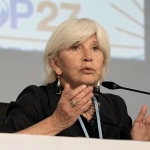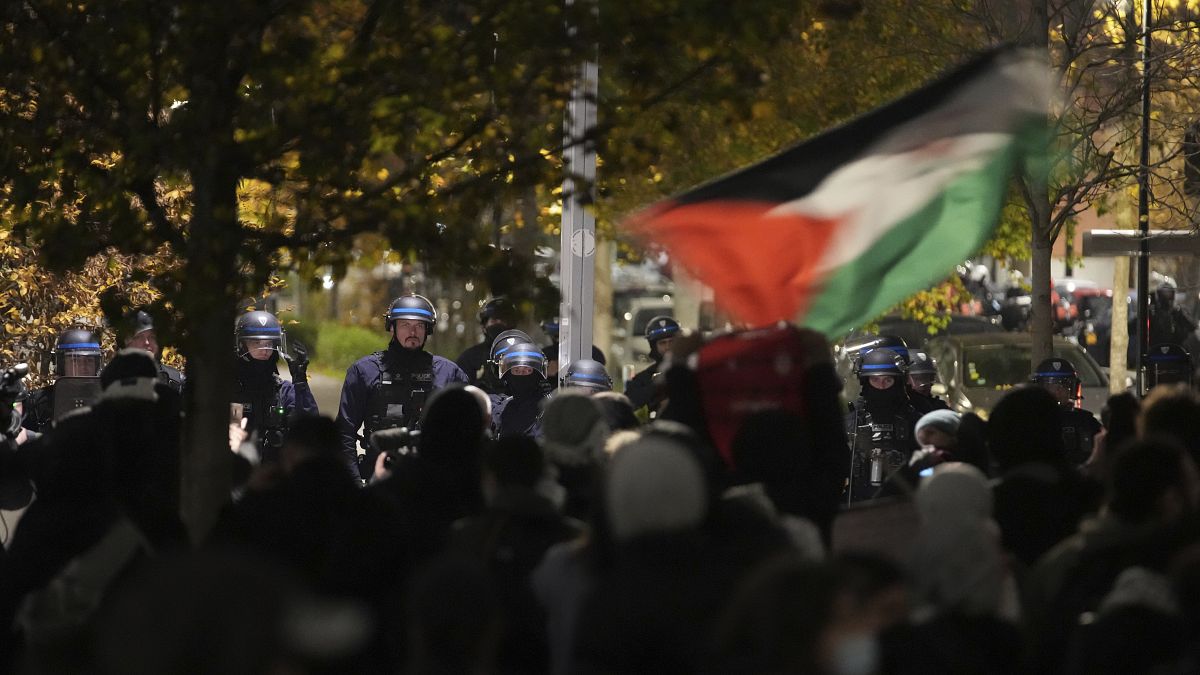The tension surrounding the UEFA Nations League match between France and Israel was palpable, with protesters gathering near the Stade de France to denounce the French government for hosting the game. Many expressed their anger at President Macron and other politicians for supporting the Israeli team amidst the ongoing conflict in Gaza. The protest highlighted the growing international concern over Israel’s actions, with many drawing parallels to genocide. The heavy police presence and security measures in place were a response to the previous week’s violent clashes between Israeli and pro-Palestinian supporters in Amsterdam, which resulted in arrests and injuries.
The atmosphere at Thursday’s game was charged, with only 13,000 tickets sold due to security concerns and fan boycotts. Inside the stadium, tensions erupted as rival supporters clashed and some fans booed Israel’s national anthem. The low attendance was a stark contrast to previous home matches of the French national team. The situation was further heightened by protests against a gala raising funds for the Israeli military the night before, adding to the already high tensions in Paris. The French authorities were taking no chances with security following the violent incidents in Amsterdam, implementing extensive measures including drones and helicopters to ensure the safety of all attendees.
The protests and clashes surrounding the match underscored the deep-rooted tensions and divisions that exist in the wake of the ongoing Israel-Palestine conflict. The demonstrations in Saint-Denis and the scuffles in the stadium were reflective of the broader international concern over the situation in Gaza, with many accusing the French government of complicity in Israeli actions. The parallels drawn between Israel’s methods of warfare and genocide by a UN committee further fueled the anger and frustration among protesters, who vowed not to remain silent in the face of what they perceived as atrocities.
The violent clashes that occurred in Amsterdam highlighted the dangers of inflamed tensions and the potential for violence in such charged environments. The antisemitic attacks on Israeli fans were condemned by authorities in Amsterdam, Israel, and across Europe, underscoring the need for heightened security measures at events involving Israeli teams. The incidents served as a stark reminder of the impact of political tensions on everyday life and the potential for violence to erupt in unexpected ways. The French authorities’ decision to ramp up security for the match was a calculated response to prevent a similar outbreak of violence in Paris.
The events surrounding the France-Israel match were a microcosm of the broader issues at play in the Israel-Palestine conflict, with tensions spilling over into sports events and leading to protests and violence. The protests in Saint-Denis and the clashes in the stadium highlighted the deep-seated anger and frustration felt by many over the situation in Gaza and the perceived complicity of governments like France in Israeli actions. The international community’s response to the conflict is complex and multifaceted, with differing viewpoints and narratives shaping public opinion and fueling further discord. The need for dialogue, understanding, and de-escalation is paramount in addressing the root causes of the conflict and preventing further violence in the future.
In conclusion, the events surrounding the France-Israel match serve as a sobering reminder of the complexities and challenges of the Israel-Palestine conflict and the impact it has on international relations and public discourse. The protests, clashes, and security measures taken reflect the deep-rooted tensions and divisions that exist, underscoring the need for dialogue and de-escalation to prevent further violence. The international community’s response to the conflict will play a crucial role in shaping the future of the region and determining the prospects for peace and stability. The incidents in Paris and Amsterdam highlight the urgent need for a coordinated and comprehensive approach to addressing the underlying issues and finding a path towards reconciliation and peace.











